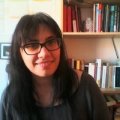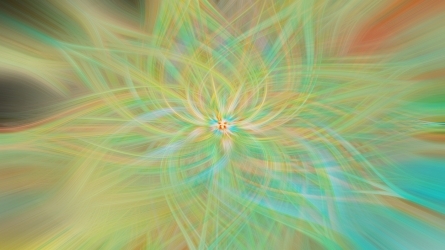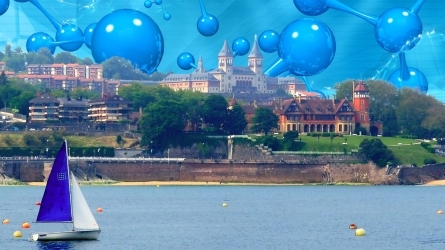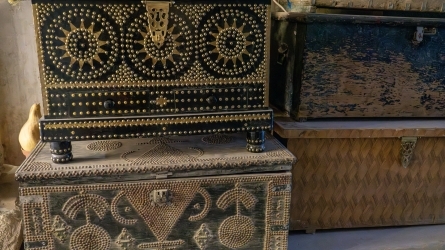How to update our rites and traditions to contemporary values and norms?
Description
The world today is a place of incessant movement and rapid social transformation. It is against this backdrop, that rituals have a double function: on the one hand to anchor in an abstract time the customs that give continuity and security in a context of constant change, and on the other to provide a space for the reinvention of traditions which have ceased to respond to the norms and values of contemporary society. In this sense, this course sets out to examine from a broad perspective the importance of ritual in everyday, festive and spiritual areas of life, areas which are increasingly diverse and complex, with a view to exploring how to promote change in favor of equality between women and men, persons with different bodies or different beliefs.
Once we have laid out the broad picture of the changes and continuites of rituals, festivals and traditions on the one hand, and the socio juridical aspects relevant to the increasing diversity of values, principles and practices on the other, from a variety of geographical points and from multiple themes taking in gender, “race” and religiosity. Finally, we will analyze the corporal, sensorial and emotional dimensions of ritual and the concepts of both pleasure and enjoyment, and danger and risk.
Objectives
To propose that this desire for continuity explains the resistance to the transformations proposed in relation to gender, “race” and beliefs.
To contemplate the social and legal dimension of the diversity of beliefs and practices and the possibility of promoting changes suited to the values of contemporary society through everyday and festive rituals.
Program
05-07-2018
17:00 h. Armen plazatik abiatuz paseo bat egingo da alardearen ohiko ibilbidetik / Partiendo de la Armen Plaza se realizará un paseo por el recorrido habitual del alarde
19'00 h Mesa de debate en Zuloaga Etxea (Kale Nagusia 8 ) Hondarribi / Mahai ingurua Hondarribiko Zuloaga Etxean (Kale Nagusia 8)
Round table: “Actividad Abierta: Construcciones identitarias rituales y simbólicas en un mundo en movimiento / Eraketa identitarioak, erritualak eta sinbolikoak mundu mugikor batean (Lugar/Lekua: Zuloaga Etxea)“
- Margaret Louise Bullen UPV/EHU (Moderator)
- Adoración Castro Jover UPV/EHU
- Mónica Cornejo Valle Universidad Complutense de Madrid
- Veronica Gisbert Gracia Universidad de Valencia
Speakers

Adoración Castro Jover
Catedrática de Derecho Eclesiástico del Estado en la Fac. de Derecho de la UPV/EHU. Líneas de investigación desarrolladas en torno a las minorías religiosas, la interculturalidad como modelo de gestión de la diversidad, la objeción de conciencia y la laicidad. Investigadora en proyectos I+D sobre temas de Minorías religiosas e identidad cultural en España y UE; Instrumentos jurídicos de integración de la diversidad; Solidaridad, participación y convivencia en la diversidad y Los límites a la autonomía de confesiones. Ha realizado estancias de investigación en las Univ.de “La Sapienza” Roma(Italia); Berkeley(USA), Oxford(UK) e invitada como “visiting” prof.” por la Fac.de Derecho de la Univ.de Bolonia y en dar conferencias en Univ. Italianas: Cagliari, Salerno, Campobasso, Roma, Siena, Florencia, Bolonia. Participación en seminario en Bremen (Alemania) y en Arras (Francia). Autora de artículos y libros.

Mónica Cornejo Valle
Mónica Cornejo es actualmente Prof. Contratado Doctor de la Universidad Complutense de Madrid. Ha recibido el Premio Nacional a la Investigación Cultural del Ministerio de Cultura de España (2007). Es miembro fundador del grupo ARESIMA (Antropología de la Religión y la Espiritualidad Instituto Madrileño de Antropología) Por último, una experiencia docente en materia de diversidad religiosa también acompaña al trabajo de investigación. Además de su vinculación actual a la Universidad Complutense de Madrid, Mónica Cornejo ha sido docente en la Universidad de Castilla-La Mancha y en la Universidad Pontificia de Salamanca-Madrid, habiendo sido docente en la universidad desde 2001. En esta docencia destacan la variedad y el número de asignaturas relacionadas con la diversidad religiosa de las que ha sido responsable.

Veronica Gisbert Gracia
Profesora asociada del Departament de Sociologia i Antropologia Social de la Universitat de Valènciay colaboradora del Centre d’estudis sobre Cultura, Poder i Identitats (Universitat de València).Estudió elErasmus MundusMaster’sDegree in Women’s and GenderStudies, con especialidad en Cultural Studies, en las Universidades de Granda y la Universiteit de Utrecht (Holanda). Actualmente, realiza su tesis doctoral sobre emociones y acciones colectivas de mujeres en espacios festivos, focalizando su análisis en el conflicto socio-festivo de las fiestas de Moros y Cristianos de Alcoi (Alicante). Además, es autora de diversos artículos y trabajos sobre mujeres y fiestas.

Margaret Louise Bullen
UPV/EHU
Margaret Bullen (Nedging, Suffolk, U.K., 1964) is a feminist anthropologist living in the Basque Country since 1991 and lecturing at the University of the Basque Country since 2005. She is currently Subdean for the Practicum in the Faculty of Education, Philosophy and Anthropology. After graduating in Modern Languages (French and Spanish) at the University of Bristol (1987), she went on to do a PhD at the Institute of Latin American Studies, University of Liverpool (1991) on cultural and social economic change amongst Andean migrants in the shanty towns of Arequipa, Peru. Her interests in migration, identity, language and change have remained a constant, strengthened by a gendered perspective and focus on gender and symbolic systems. In recent years, her research has centred on the conflicts arising around changes proposed in different rituals across the Basque province of Gipuzkoa, with an emphasis on the polemic over the participation of women in the parades or Alardes of Hondarribia
Venue
Zuloaga Etxea
Kale Nagusia 8. Hondarribi
Gipuzkoa




